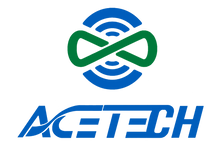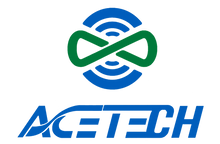
联系我们
德国莱茵TÜV获批太阳能行业ESG评估服务
作为认证评估行业的领先企业,德国莱茵TÜV 已获得批准对 内的供应商和制造商进行评估太阳能行业(PV) 在 下环境、社会和治理 (ESG) 由 制定的标准太阳能管理倡议 (SSI). 此项认证使德国莱茵 TÜV 能够评估并确保太阳能公司满足对光伏供应链的长期健康发展至关重要的可持续性基准。
太阳能管理计划 (SSI) 的作用
The 小型工业标准 是作为太阳能行业内部倡议而成立的,旨在促进 可持续性 在整个 光伏供应链. 通过将太阳能行业与ESG 原则,SSI 致力于保证供应商和制造商都合乎道德地经营、优先考虑环境责任并维护人权。
SSI 设计的 ESG 标准针对太阳能行业的独特需求量身定制,借鉴国际可持续发展规范,同时融入行业特定专业知识。这些标准确保光伏行业不仅可持续增长,而且还能解决以下关键问题:企业道德、治理、劳工权利, 和 环境影响.
德国莱茵TÜV在ESG评估中的作用
通过获得 SSI 的批准,德国莱茵 TÜV 现已被正式认可为可执行 ESG 评估 在太阳能行业内。SSI 旗下的每个成员公司必须在一年内对其至少两个生产或运营地点进行评估。这些评估将衡量这些设施是否符合 SSI 设定的 ESG 标准。
TÜV Rheinland 的评估重点是确保供应商和制造商遵守治理协议、劳工权利实践和环境标准。作为测试和认证领域的知名品牌,TÜV Rheinland 的评估在验证太阳能供应链的可持续性和透明度方面具有重要意义。
为什么 ESG 标准对太阳能行业至关重要
The 太阳能行业 在全球向转变的过程中发挥着关键作用清洁能源。然而,随着太阳能电池板需求的增加,该行业必须确保整个供应链(从原材料提取到制造和安装)保持可持续。ESG 标准 通过制定促进道德实践和减少环境危害的指导方针来帮助应对这一挑战。
环境:太阳能行业在为清洁能源做出贡献的同时,必须管理其运营对环境的影响,包括资源开采、生产和废物处理。ESG 标准确保公司最大限度地减少其生态足迹。
社交:保护 劳工权利 促进公平的工作条件是 ESG 标准的重要组成部分。光伏供应链通常横跨多个国家,必须确保工人得到公平对待,他们的权利得到尊重。
治理:强有力的治理实践对于促进太阳能行业的透明度和道德行为至关重要。ESG 标准确保行业内的公司遵守高治理标准,降低腐败风险并确保遵守国际法规。
德国莱茵TÜV对可持续发展的承诺
TÜV Rheinland 全球定制服务主管 Frank Dorssers 表达了公司对与 SSI 合作的热情:“ESG 标准的主要目标是促进更负责任、更透明、更可持续的太阳能价值链。我们很高兴被太阳能管理倡议组织认可为评估机构。这一联盟与我们推动可持续发展和促进太阳能行业创新的使命完美契合。我们承诺以我们的专业知识推进 SSI 的目标。”
此次合作彰显了德国莱茵TÜV致力于推动可持续实践 在太阳能行业。他们作为 ESG顾问 确保太阳能公司不仅符合行业标准,而且还积极为更加符合道德和环保的全球能源格局做出贡献。
ESG 认证如何影响太阳能行业
随着越来越多的公司寻求减少其碳足迹 并过渡到 可再生能源,遵守ESG 标准 正在成为确保长期成功的关键因素。通过整合 社会、环境和治理原则 太阳能公司可以将其业务:
提高声誉:符合 ESG 标准的公司将获得负责任和可持续发展的良好声誉,从而吸引客户、投资者和合作伙伴。
降低风险:遵守环境和社会法规可最大限度地降低法律问题、罚款或声誉损害的风险,尤其是在世界各国政府收紧可持续发展法律的情况下。
提高效率:ESG 评估通常会确定需要改善资源利用的领域,这可以降低运营成本并提高效率,特别是在能源使用和减少浪费方面。
增加投资机会:投资者越来越关注ESG 表现 做出决策时。在 ESG 评估中得分较高的公司更有可能获得社会责任投资者的资金。
支持长期增长:通过致力于可持续发展,太阳能公司确保他们为未来做好准备,未来环境责任和道德治理将是不可谈判的。
ESG 在太阳能行业的未来
在德国莱茵TÜV的参与下,太阳能管理倡议 获得了推动光伏行业可持续发展的重要合作伙伴。可再生能源 将继续上升,随之而来的是,对 的需求透明、负责、可问责的供应链。ESG 认证将成为寻求在快速发展的清洁能源市场中保持竞争优势的公司的标准要求。
随着全球太阳能公司继续采用 ESG 标准,从制造商到最终用户的整个供应链都将受益。这一举措旨在提高 可持续性 不仅有助于保护环境,而且还加强了该行业的社会和道德基础。
探索 ACE 电池以获得可靠且可持续的能源解决方案
随着可持续性在能源领域变得至关重要,选择可靠的能源供应商至关重要。访问 ACE 电池 探索旨在为未来提供动力的创新环保电池解决方案。无论您需要用于太阳能系统的高效储能,还是用于其他应用的先进电池技术,ACE Battery 都能为您提供值得信赖的专业知识和产品。切换到 可持续能源 提供满足最高可靠性和性能标准的解决方案。
结论
TÜV Rheinland 获准在太阳能行业开展 ESG 评估,这标志着朝着确保更可持续、更负责任的太阳能供应链迈出了重要一步。通过采用 ESG 标准,企业可以增强其可持续性、治理和道德实践,为太阳能行业创造更强大、更绿色的未来。
如果您有任何疑问,我们的专家将与您联系!
